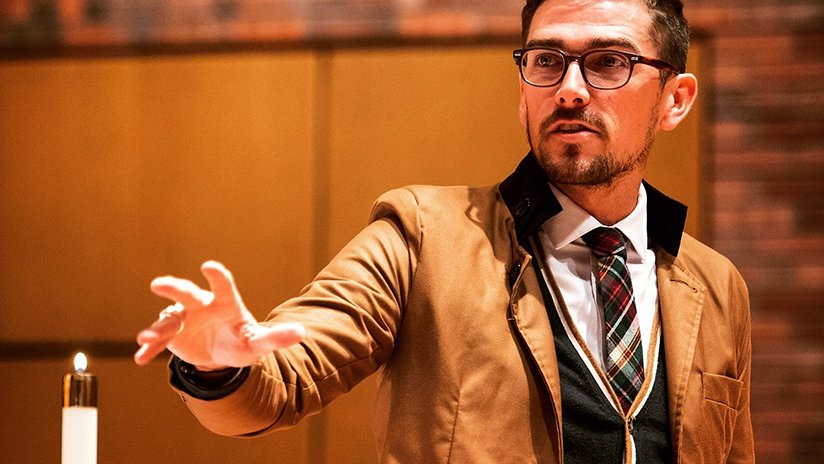
-
HOME
-
WHAT IS STANDOur Mission Our Values Our Help Contact
-
WHAT WE FIGHT FORReligious Freedom Religious Literacy Equality & Human Rights Inclusion & Respect Free Speech Responsible Journalism Corporate Accountability
-
RESOURCESExpert Studies Landmark Decisions White Papers FAQs David Miscavige Religious Freedom Resource Center Freedom of Religion & Human Rights Topic Index Priest-Penitent Privilege Islamophobia
-
HATE MONITORBiased Media Propagandists Hatemongers False Experts Hate Monitor Blog
-
NEWSROOMNews Media Watch Videos Blog
-
TAKE ACTIONCombat Hate & Discrimination Champion Freedom of Religion Demand Accountability
Why People Are So Passionate About Religion Online
It’s an exciting time to be alive. I would argue, in fact, that it’s more exciting to be alive in this time than at any other time in human history. Our ability to create, reach, communicate and effect change is more apparent and real than ever before.
But the same tools that allow us to communicate so freely with so many people also create opportunities for conflict and discord that can ripple around the world like a virus with no cure.

I applaud the efforts of social scientists who are working to understand how tools and platforms like social media effect our interaction and shape society. I read a recent article that attempted to understand how and why people discuss religion and other hot-button topics at such an emotional fever pitch. The answer, as you might imagine, is nuanced and a little complicated. But two things really stuck out to me as important.
First, there’s an aspect of human nature within us that demands that each of us be “right.” Even people who are clearly behaving in a destructive, unhelpful way will rage at everyone around them, insisting on how right their behavior actually is. It makes sense in a way. We’re all seeking to survive as best we can and people tend to make the best decisions they can with the information they have at any given moment. Admitting one is wrong and taking responsibility for destructive behavior is arguably the bravest thing a person can do and unfortunately not something we tend to see broadly happening in the media or online. So discussing a topic that is as vital to our “rightness” as our basic beliefs about this life and the hereafter inevitably brings out our most passionate desires to be right and to assert that rightness in the face of any and all opposition.
I believe that the more confident you are in your beliefs and viewpoints, the more generous you can be with beliefs and viewpoints that differ from your own.
The above has been true throughout human history and therefore is nothing new. Which brings me to my second observation: our society is now being shaped by incredibly smart people who have figured out how to aggregate mind-boggling amounts of data. That can be incredibly helpful (even lifesaving in the context of things like healthcare). But that data also allows them to predict and manipulate human behavior on a level never before possible. That is something new and deeply concerning.
One of the most helpful pieces of information I’ve learned in Scientology is the Third Party Law which states that, for a conflict to continue unresolved between two people or groups, a hidden third party must be fomenting that conflict. In other words, if you see two people arguing, it’s easy to observe that they’re upset with each other and the conflict may seem straightforward and “understandable.” But behind the scenes, sometimes so subtle that it’s very difficult to spot, is someone who has worked to pit one person against the other. And if both people in the argument are able to spot that third party, the conflict will immediately resolve.
I bring this up because “clickbait” is BIG business in the 21st century. Media outlets, blogs, social media groups and anyone trying to get attention online will do and say virtually anything in order to generate views, eyeballs, clicks and likes on their posted content. And if you have access to computer programs and artificial intelligence algorithms that allow you to create content you know will fuel the kind of conflict that virtually guarantees an online audience, it only makes business sense to create as much of that content as possible.

The problem with this approach is that the truth very quickly becomes a casualty and ultimately irrelevant to the story being told. As a Scientologist, I see this over and over again, as malicious exaggerations, distortions and outright lies are told and forwarded about my church again and again, often by major media outlets people trust to bring them something resembling objective truth. And it’s justified by so many because that kind of conflict is what people are most likely to engage with in our obsessive human need to be “right.”
So what if individual Scientologists are hurt, harmed or even killed? That’s just the nature of conflict.
I believe that the more confident you are in your beliefs and viewpoints, the more generous you can be with beliefs and viewpoints that differ from your own. Courtesy, kindness, and polite and sincere discourse are possible and vital to the health of any society. Those who would pit one group or individual against another for entertainment or profit act like a cancer on the vast majority who want to live in a world where people get along.
As we work to determine what is and isn’t acceptable online, the freedom to believe exactly what is real to you and to allow everyone else in the world to do the same is the ideal we must continue to strive for.
Settling for anything less is dangerous, irresponsible and ultimately a tragedy.









